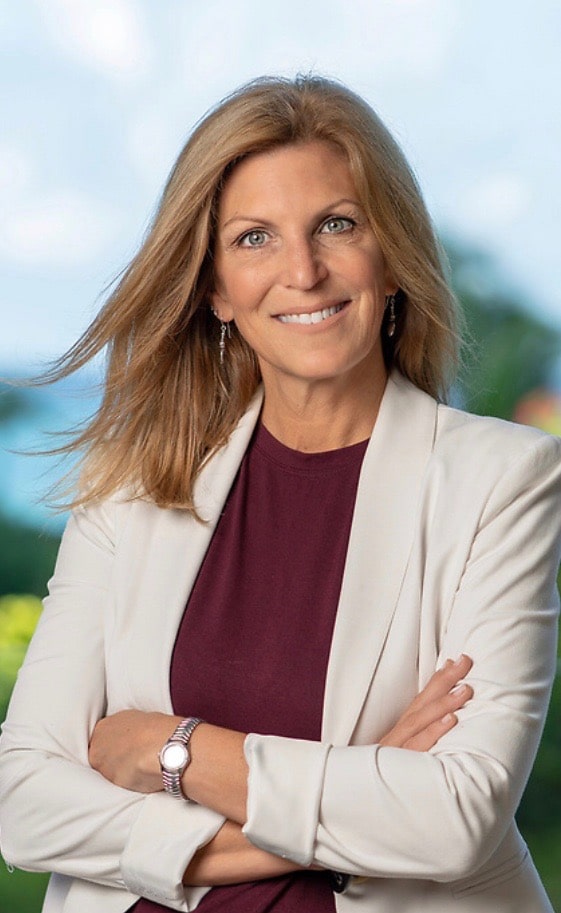Q&A with Wendy Blaney, Groups360 vice president of sales
Wendy Blaney joined the Groups360 leadership team in March 2020 as vice president of sales, leading sales efforts in the Northeast and Mid-Atlantic regions.

Based in New Jersey, Blaney brings close to 30 years of group sales and travel strategy experience to the team. Her career includes management and leadership roles for Sheraton, Wyndham and Caesars Entertainment Corporation, as well as internal travel services management at Johnson & Johnson. Most recently, Blaney served as senior vice president and chief sales officer of Atlantis, Paradise Island, where she led sales, revenue management and call center operations.
Over the course of her career, Blaney has worked with events of all sizes and has a passion for the industry. She’s not only a proven leader in the meetings and events market with a successful track record leading remote sales teams, but she also has a history of implementing the latest travel technology since widespread use of the internet first began.
Groups360 sat down to discuss her history and what she envisions for the future of event technology.
Q: Tell us about your history in hospitality and corporate travel.
A: While I was director of global sales at ITT Sheraton, negotiating corporate hotel programs, I partnered with many corporate travel managers in that role, helping secure the best rates for both the hotel and the buyer. Johnson & Johnson was one of my customers. After being in the hotel industry for about 10 years, I went to run the travel department for Johnson & Johnson, which had one of the largest multinational travel spend at that time.
During the six years I worked for Johnson & Johnson, I managed our corporate travel policy and corporate credit cards. I negotiated transient rates for our global hotel program and car rentals, and I started out making some of our international airline deals on air fare, and then I went on to assist my boss in domestic airline deals as well.
Q: What inspired you to be an early adopter of online travel technology?
A: My boss was actually super innovative. Everyone knew him — he was an icon in the industry. An amazing guy. He had been my customer when I was at Sheraton, and he recruited me to come work for him. He believed that this technology would change the face of corporate travel. And he assigned the project to me because he assumed that I was tech savvy — I worked from home and carried a laptop.
I deployed the first online booking tool for negotiated rates with key providers — the first iteration of American Express Interactive (AXI) — on a global level at Johnson & Johnson back in 1997 when widespread use of the internet was first underway. We had good results. By the time I left, an average of about 60% of our travelers across all 52 business units adopted the technology, which was high for the time.
Beyond the U.S., I deployed online travel booking tools all over the world, except for Asia. I also evaluated other tools like StarCite, which is now part of Amadeus, and other business travel technologies and expense reporting tools. The best tools were the ones that drove efficiency and incorporated our internal travel policies for better decision making and cost effectiveness.
Later, I was recruited to Cendant Corporation to build their first travel program. Cendant owned a bunch of travel companies including Galileo, Highwire and Avis Budget Group, as well as a dozen hotel brands, but each company was doing its own thing. If you worked for Galileo, you booked whatever provider you wanted on Galileo. If you worked for Avis Budget, you just used that brand’s car. I came in and consolidated their travel program using the online booking tools that we already owned, like Travelport. After Cendant broke up into smaller businesses, I was assigned to Wyndham Worldwide.
After Cendant and Wyndham Worldwide, I returned to the hotel business. I missed being part of a team, part of something bigger. I loved working at Caesars because they really thought outside of the box, and that was my first major role managing other people, which I love doing.
Q: How did your hospitality experience benefit your work with meeting planners?
A: My hospitality experience benefited my work with meeting planners because I had an inside look as to what was important to the hotel when they were negotiating tradeoffs and concessions. And having been on the corporate side, I could have an honest conversation with my hotel partners when I suspected they weren’t being straightforward.
I worked with our meeting planners and strategic sourcing teams on strategies for negotiating hotel rates and on ways to avoid cancellation fees on booked rooms and event space
Q: What inspired your decision to join Groups360?
A: The GroupSync technology is, quite frankly, the most creative travel technology I’ve ever seen. I had been leading sales teams for so long, and I could see just how much more efficient my team would be when answering RFPs. We would do such a good job customizing our responses. And then I considered it from the meeting planner’s point of view — a planner would only have to send RFPs to 10 hotels instead of 50 because GroupSync qualifies the lead before it ever goes out.
GroupSync ensures a win-win situation for both the hotel and event planner. Hoteliers are so tired of responding to RFPs whose business they’ll never win or isn’t the best fit for their hotel, and meeting planners are tired of having to chase down responses to their RFPs. GroupSync just makes everyone so much more efficient. I recognized a marriage of efficiency and information, and knowledge is ultimately power.
GroupSync is exactly what group travel needs to address lead spam and pave the way for the future of meetings and events. I’m thrilled to be a part of it.
Q: Do you see any barriers to getting meeting planners to change their workflow?
A: I see barriers to anybody changing the way they’ve always done things. Change is hard for most people. Relationship building is important, so people in our organization who have built that trust can guide meeting planners through the benefits of changing their workflow. But with this technology, you’ve really got nothing to lose. I don’t see changing the way you source hotels as being as risky as switching from one supplier to another.
Q: In your new role, what do you hope to contribute to the industry?
A: My goal is to increase the efficiency and trust between buyers and sellers because people hold stuff way too close to the vest. We all know how important meeting face-to-face is, especially now. Meeting planners and hoteliers need and want to work together — we’re in hospitality, after all. We’re relationship people by nature. I intend to work toward removing all the barriers to transparency that have created the lack of trust between these two sides so that we’re doing what we’re meant to do — be hospitable and provide group travel and event experiences to the best of our ability.


